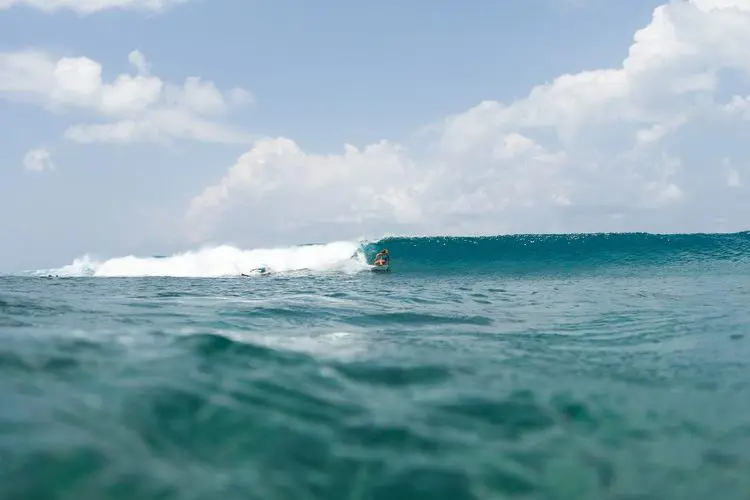One of the Maldives' Greatest Waves Faces Serious Threat

The Maldives is widely known as a tropical surfing paradise, home to dozens of world-class surf spots and consistent swells year-round. With crystal-clear waters, predictable winds, and ideal reef setups, the Maldives has become a must-visit destination for surfers. But this surfing haven is under serious threat due to the rapid expansion of luxury resorts and artificial land reclamation, which are impacting both the environment and the surf spots that make the Maldives so desirable.
One of the most famous waves, "Chickens," located off Kuda Villigili in the North Malé Atoll, has been greatly affected by the resort development. This lefthander is known for its long rides, tube sections, and suitability for surfers of all skill levels. However, a recent land reclamation project has expanded the island and built a seawall to protect the development. Unfortunately, this seawall has led to backwash, which disrupts the wave and threatens the delicate atoll system that supports it.
Backwash from the seawall is causing severe erosion and interfering with the natural flow of the wave. This backwash not only harms the surf spot but also jeopardizes the island’s beaches and the surrounding coral reefs. The issue is critical, as the resort developers, who rely on surfing tourism, are at risk of losing the very attraction that draws visitors to the island.
The Maldivian government is aware of the situation, and there is hope that a solution will be found. The most practical way forward is to replace the seawall with a more absorptive structure that mimics the original natural coastline, thus protecting the development while allowing the wave to thrive. This solution, however, requires careful planning and expert input, and time is of the essence.
"Save the Waves," a campaign launched to raise awareness of the issue, has called for public support to pressure the Maldivian government and developers to prioritize preserving the wave. If successful, Chickens will be the first surf break in the Maldives to have its value recognized and protected.
Beyond the environmental concerns, there's also the issue of access. Currently, Chickens is an exclusive surf spot for resort guests, leaving local surfers with limited opportunities to access the wave. This raises questions about the ethical implications of privatizing public surf spots in a country where the surf culture runs deep.
Ultimately, finding a balance between development and environmental conservation is essential. Sustainable development must prioritize the preservation of the natural resources that make the Maldives such a unique and valuable destination. As Ed Atkin from the Surfbreak Protection Society suggests, integrating environmental benefits into development plans is crucial, especially in fragile ecosystems like the Maldives.
If the Maldives can find a way to protect its surf breaks while embracing responsible tourism, it will set a precedent for sustainable development and preserve the natural beauty that attracts visitors from around the world.

